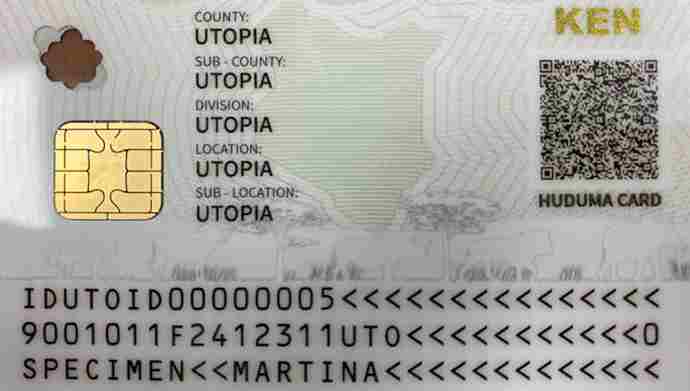Civil society has raised core concerns about the risks of Maisha Namba, which remain unaddressed.
President William Ruto announced that Kenyans will be issued new digital identification cards, known as Maisha Namba, in December 2023.
The digital ID will use iris and fingerprint data to enable holders to make transactions conveniently.
In addition, the card aims to streamline access to online government services by allowing bearers to log in their personal details fully.
The introduction of the Unique Personal Identifier (UPI) is a significant development in the Maisha Namba system.
This move is expected to enhance efficiency, accuracy, and security in the registration and identification of individuals.
As a result, the CSOs have proposed solution-oriented recommendations to promote inclusion, safeguard the personal data of Kenyan citizens and residents, and ensure strong governance of Kenya’s identification system.
@Vkapiyo presenting a Memo on Maisha Number to PS, Immigrations Amb (Prof) Julius Bitok. The memo is the work of CSOs working on digital ID in Kenya @KICTANet @AmnestyKenya @NamatiKenya @NubianRights @StrathCIPIT @Bomu pic.twitter.com/fedT3nCezE
— Grace Githaiga (@ggithaiga) November 1, 2023
These must be addressed for Maisha Namba to succeed:
- Enact a Comprehensive Policy and Legal Framework: A comprehensive policy and legal framework to govern the digital ID system must be enacted. This framework should be fully grounded in the Constitution and align with requirements from the High Court judgment in Nubian Rights Forum et al. v the Honourable Attorney-General of Kenya et al. The framework must address how Kenyans without access to identity documents or with poor biometrics will be enrolled.
- Conduct Meaningful Nationwide Public Participation: Robust public participation across the country is required for all related legislation, regulations, and system design proposals. Public participation requires substantial public information on the proposals and sufficient time for the public to prepare and submit responses.
- Abolish ID Vetting for All Kenyans: Secondary ID vetting is applied to certain Kenyans based only on their ethnicity or religion, not the strength of their application for an ID card. Instead of vetting, the documents submitted by every ID applicant should be verified against existing government information.
- Implement Affirmative Action Measures: Affirmative action measures should be implemented to issue documents to all Kenyans who have been excluded from accessing identification due to the historical existence of vetting and underinvestment in registration services in many areas of Kenya over the past several decades.
These are the bare minimums that need to be addressed in order for Maisha Namba to succeed.
RELATED
![]()




